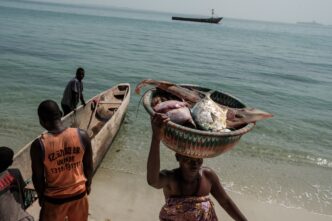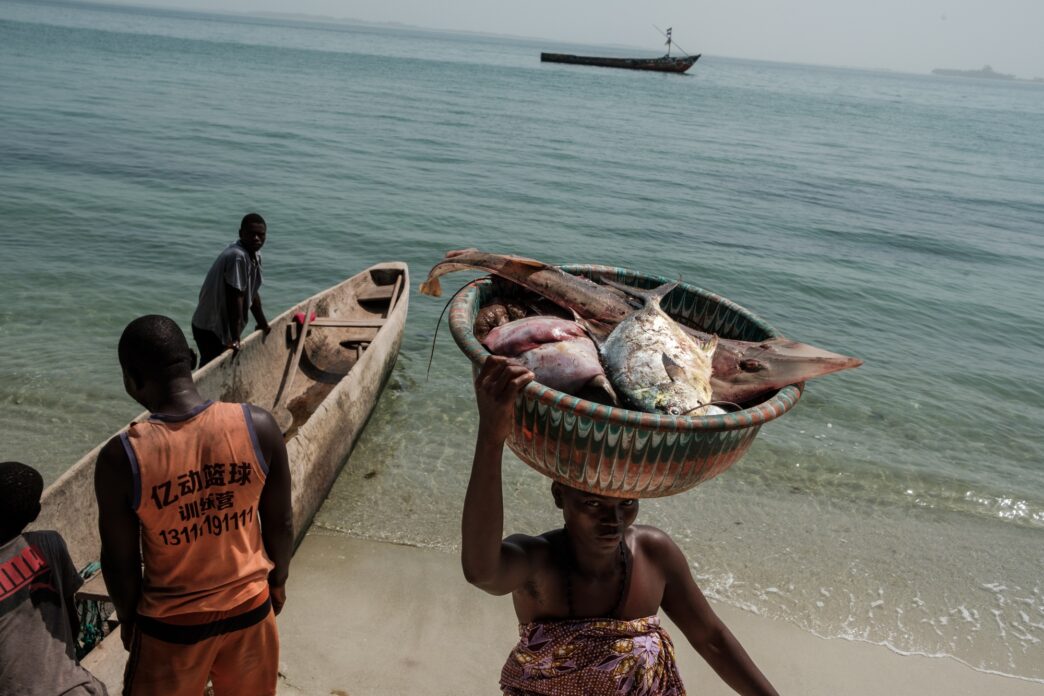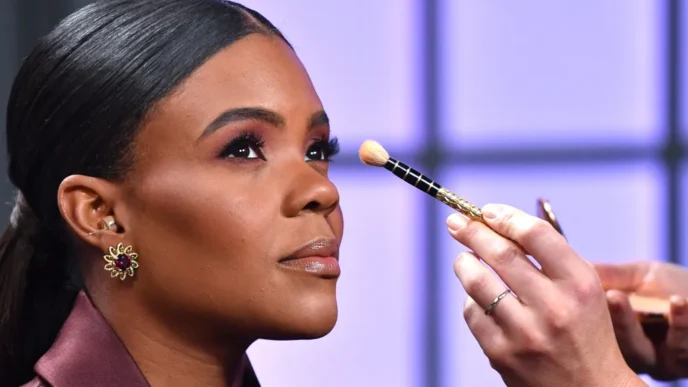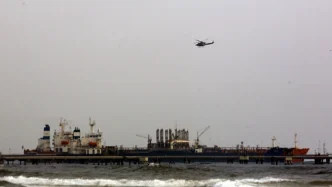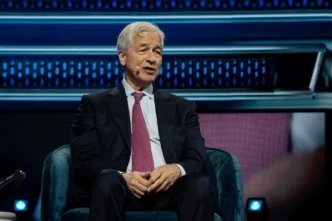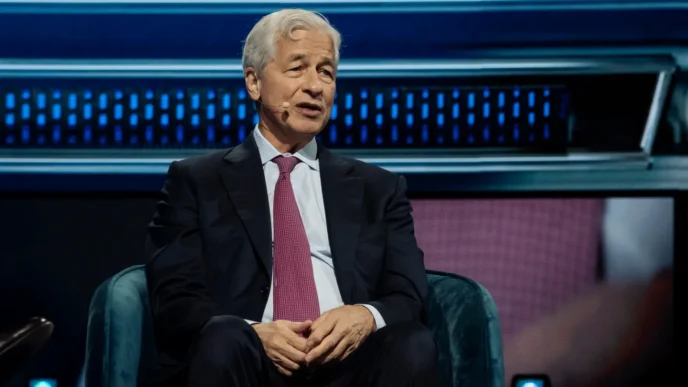For years, Russia has steadily deepened its influence across Africa through deals involving minerals, energy, arms, and food security. From gold mines in Sudan to diamond fields in the Central African Republic, Moscow has pursued natural-resource partnerships as part of its geopolitical strategy on the continent. Now, as sanctions tighten and the Kremlin looks for new avenues of economic resilience, Russia is expanding into a less-discussed but increasingly strategic sector: Africa’s enormous trove of fish.
With some of the richest and most underutilized marine resources in the world, Africa’s coastal nations—from Senegal to Namibia, from Mauritania to Mozambique—have become targets of Russia’s expanding fishing fleet. Moscow is seeking long-term access agreements, joint ventures, processing facilities, and exclusive maritime licenses that could reshape the continent’s fishing economy and the geopolitical balance of maritime resources.
This emerging move marks a new frontier in Russia’s Africa strategy: a combination of food security, economic leverage, and geopolitical positioning at sea.
Russia’s Strategic Pivot: Why Fish Matters Now
Western sanctions have increasingly limited Russia’s access to global markets—not only for energy and high-tech goods, but also for seafood exports. At the same time, the war in Ukraine has strained the country’s domestic industrial sectors, including fisheries, which rely on imported parts, modern vessels, and international trade flows.
Against this backdrop, Africa offers three vital opportunities:
1. Food Security at a Time of Domestic Strain
Russia’s fishing industry is a major supplier of protein. As sanctions disrupt logistics and markets, access to African waters helps secure fishing grounds free from Western restrictions.
2. New Revenue Streams Outside Sanctions Reach
African nations are less likely to enforce U.S.- or EU-led sanctions. Russia can expand fleets, process catches, and export seafood through friendlier trade corridors.
3. Geopolitical Influence on the World’s Maritime Resources
By securing fishing rights, Russia strengthens relationships with governments it hopes to influence—deepening ties that already include arms sales, energy deals, and political partnerships.
This mirrors China’s strategy in global fisheries—but with the added urgency of a nation under unprecedented economic pressure.
African Governments See Opportunity—But Also Risk
African states are increasingly welcoming foreign investment in their fisheries sectors. Many coastal nations lack:
- modern fleets,
- processing infrastructure,
- cold-storage facilities,
- and enforcement capacity in their coastal waters.
Foreign partners offer capital, expertise, and employment opportunities. Russia’s pitch is straightforward: “We will help you develop your industry—if you grant us access.”
Several African governments have responded positively, signing deals that include:
- joint fishing operations,
- Russian-built processing plants,
- maritime training programs,
- and management agreements for exclusive fishing zones.
However, critics warn that this approach mirrors past patterns in African resource extraction:
- local communities risk being displaced or losing access to traditional livelihoods;
- overfishing could devastate fragile marine ecosystems;
- African governments may receive far less revenue than promised;
- and foreign fleets could undermine the long-term sustainability of local industries.
Indeed, much of Africa’s fishing sector remains vulnerable to “resource capture,” where foreign powers extract high-value resources while providing limited development benefits.
Russia’s Presence in Specific Regions
West Africa: The New Hub of Russian Fishing Operations
Countries like Mauritania, Senegal, Guinea-Bissau, and Sierra Leone are attracting Russian fleets seeking rich sardine, tuna, and hake populations. West Africa’s waters are among the most biodiverse yet least regulated in the world—a combination that appeals to foreign fishing powers.
Southern Africa: Namibia and Mozambique in Focus
Russia is pursuing more structured partnerships in Namibia and Mozambique, where governments have stronger regulatory frameworks. Here, Russia aims not only to fish but to set up processing and export centers.
The Horn of Africa: Strategic Maritime Geography
Somalia and Eritrea, located along vital shipping lanes, have become geopolitical entry points. Moscow’s maritime agreements often overlap with broader security or political arrangements.
The Shadow of Mercenary Influence: Wagner’s Old Footprint
In several African countries where Russia is expanding its fishing presence, the former Wagner Group (now integrated into Russia’s Ministry of Defense) has left a significant political and economic footprint.
In nations like Sudan and the Central African Republic—where Wagner once had mining operations—local networks and influence channels remain. These networks can facilitate new deals, including those related to maritime resources.
While Russia presents its fishing initiatives as normal commercial activity, analysts argue that they form part of a wider geopolitical strategy involving:
- security contracts,
- political advisory services,
- resource extraction,
- and influence campaigns.
Fishing is simply the newest pillar.
The Global Context: A New Scramble for Seafood
Africa is not the only region where Russia is expanding its fishing footprint. But the continent represents the largest untapped opportunity. Overfishing in Asian and European waters, combined with climate-driven shifts in fish populations, has made Africa the next frontier in the global seafood scramble.
This race includes:
- China, operating the world’s largest distant-water fishing fleet
- Turkey, rapidly increasing its footprint in West Africa
- European fleets, long entrenched in North African waters
- Middle Eastern investors, seeking food security supplies
Russia’s entry adds another major player to already crowded and contested seas.
Environmental and Social Concerns Intensify
West African fishing communities have already protested foreign fleets—Chinese, European, and now Russian—for depleting local fish stocks essential for food security. In some villages, catch volumes have dropped by more than half in the last decade.
Environmental groups warn that:
- industrial trawlers devastate seafloor ecosystems;
- overfishing could trigger food shortages;
- illegal, unreported, and unregulated (IUU) fishing continues largely unchecked;
- African nations may lose long-term resource sovereignty.
If Russia expands rapidly without strong oversight, these pressures will only intensify.
African Leaders Face a Critical Choice
Russia’s aggressive pursuit of African fisheries puts local governments at a crossroads. They must weigh:
- short-term economic benefits,
against - long-term sustainability and sovereignty.
For countries with limited budgets and high unemployment, Russia’s offers can be extremely attractive. But history shows that unequal partnerships—whether in mining, energy, or agriculture—can leave African nations worse off once foreign interests dominate the sector.
The fishing economy is particularly sensitive, as millions depend on it for food and income.
Conclusion: Russia’s African Strategy Enters Its Next Phase
After gold, diamonds, energy, and grain, Russia is now turning to the sea—seeking to secure long-term access to Africa’s fish-rich waters. This expansion is driven by economic necessity, geopolitical ambition, and the growing strategic importance of global food resources.
For Africa, the opportunity is real—but so are the risks. If managed well, Russian partnerships could modernize local industries and bring investment to neglected coastal regions. If mismanaged, they could accelerate environmental decline, undermine local livelihoods, and deepen dependence on foreign powers.
One thing is clear: Russia’s interest in Africa is evolving, diversifying, and intensifying. The scramble for the continent’s resources has moved offshore. The next chapter of Africa’s geopolitical struggle will be written not only in mines and oilfields—but across its vast, contested, and increasingly valuable seas.

